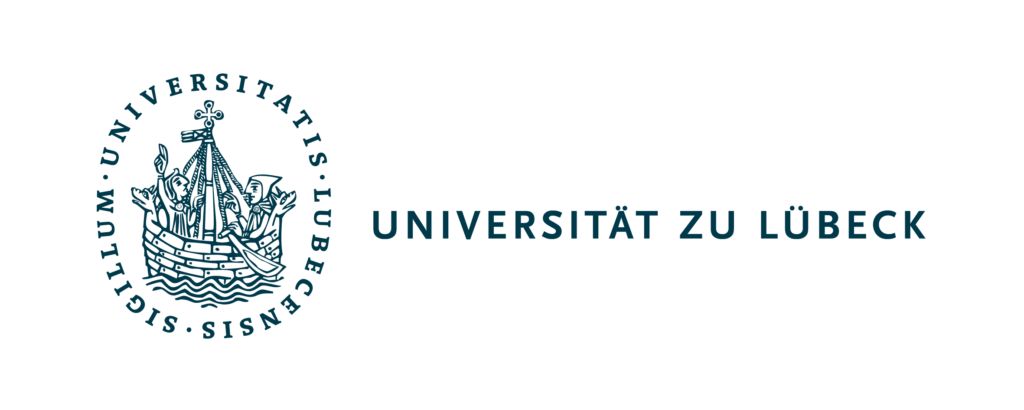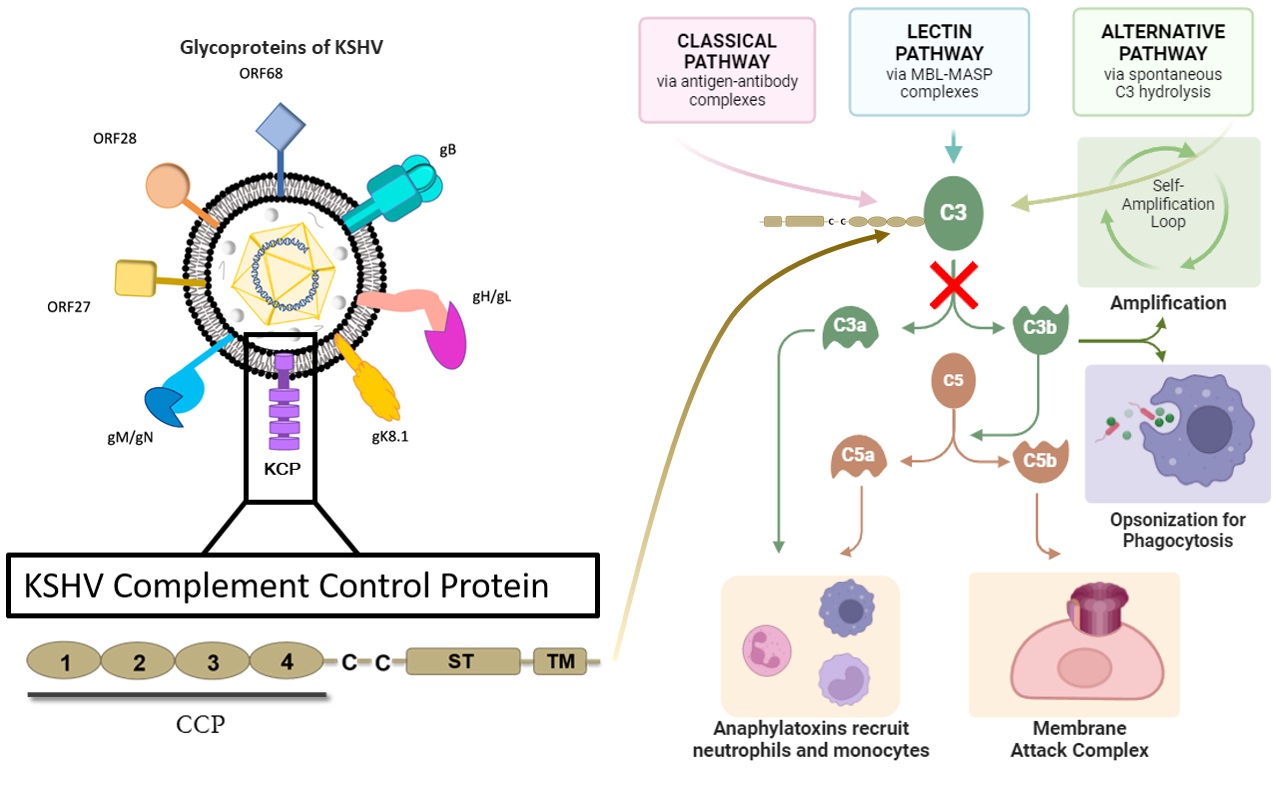Principal Investigator
Prof. Dr. Thomas Krey
Universität zu Lübeck
A08
PhD candidate
Hera Fatima

A08
Project Summary
Structural Characterization of Complement Control Protein of Kaposi´s Sarcoma Associated Herpes Virus
Kaposi’s sarcoma-associated herpesvirus (KSHV) is an oncogenic virus implicated in Kaposi’s sarcoma (KS), primary effusion lymphoma (PEL), and multicentric Castleman’s Disease (MCD) in individuals with acquired immunodeficiency syndrome. Current therapeutic strategies primarily target HIV and cancer due to the lack of specific treatments for KSHV-associated diseases. The absence of suitable small animal models further complicates efforts towards targeted therapies. Both lytic and latent proteins encoded by KSHV play critical roles in pathogenesis and represent potential therapeutic targets.
KSHV complement control protein (KCP), expressed by ORF4, is a glycoprotein that plays a significant role in establishing infection by evading host immune responses. KCP shares homology with human regulators of complement activation and primarily inhibits the classical complement pathway. Structurally, KCP is a type I transmembrane protein featuring four complement control protein (CCP) domains, a unique sequence with cysteine residues, a serine/threonine-rich region (S/T region), a transmembrane domain, and a cytoplasmic residue. CCPs, also known as short consensus repeats (SCRs) or SUSHI domains, are β-strand rich domains involved in protein-protein interactions.
This project aims to structurally characterize KCP and elucidate its molecular interactions with the complement system and other novel interacting partners. We seek to understand the functional implications of these interactions and their relevance in the context of infection, particularly focusing on KCP’s immune evasion strategies by modulating the immune system.

